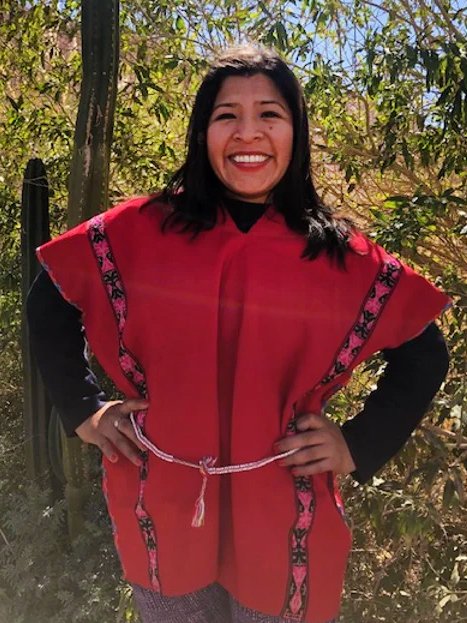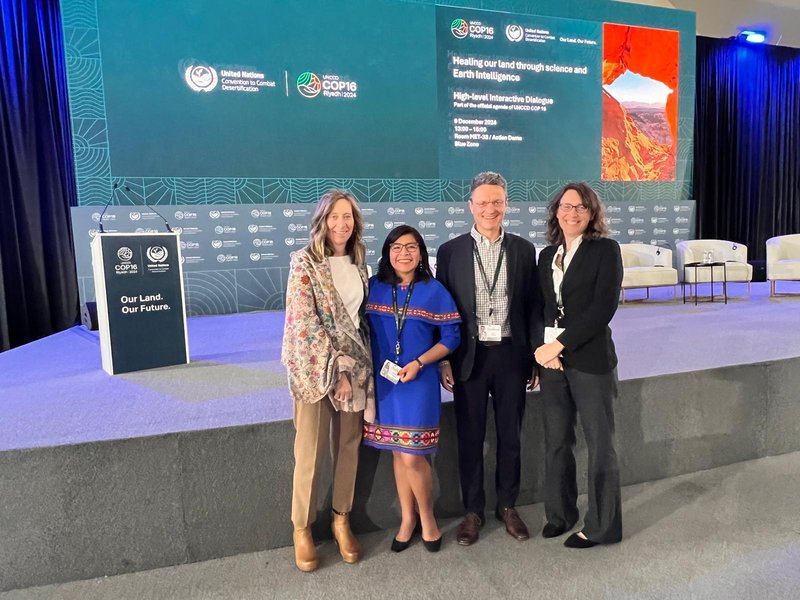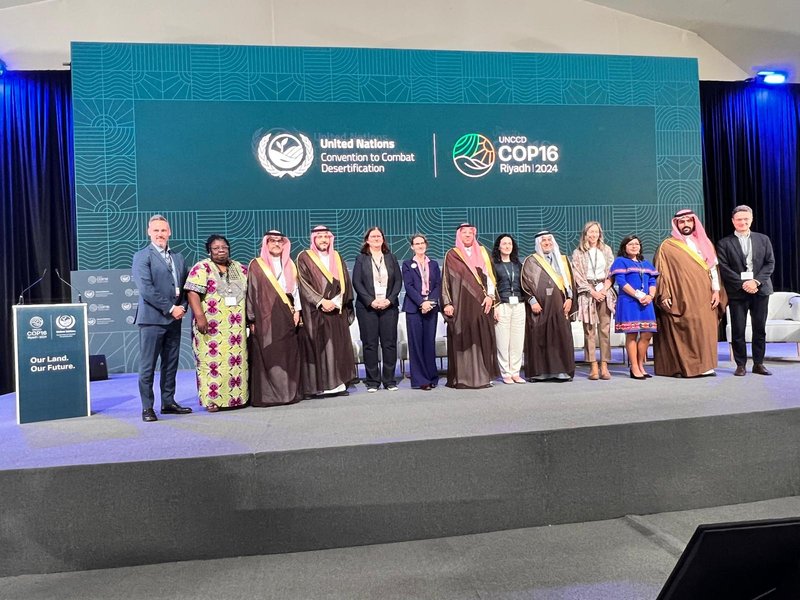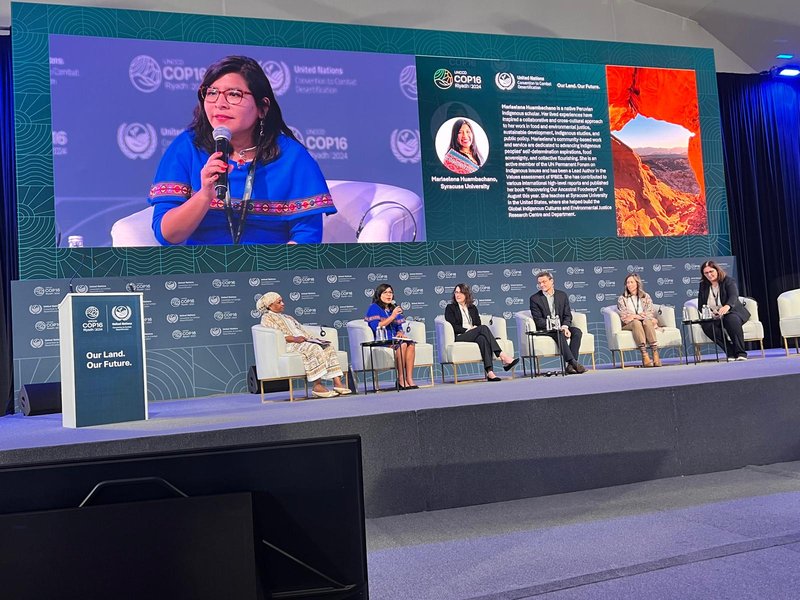
Professor Mariaelena Huambachano highlights the importance of integrating Indigenous knowledge into climate change policy at a United Nations conference in Saudi Arabia.
For millions around the world, degradation of their land due to factors like climate change, deforestation, overgrazing and unsustainable farming practices have caused harm to both human health and the environment. Desertification, which is when fertile land turns into desert because of natural and human factors, can lead to food and water scarcity, loss of biodiversity and forced migration. In December 2024, the United Nations hosted a conference in Saudi Arabia, bringing together leading environmental experts and policy makers from around the globe to discuss strategies for combating desertification and safeguarding both the environment and human well-being.

A&S Professor Mariaelena Huambachano (second from left) was a panelist at the UN Desertification Conference High-Level Interactive Dialogue along with (from left to right) Nichole Barger (University of Colorado), Michael Obersteiner (Oxford University) and Becky Chaplin-Kramer (World Wildlife Fund for Nature).
Mariaelena Huambachano (Quechua, Peru), an Indigenous scholar and assistant professor in the College of Arts and Sciences, gave three talks during the 11-day United Nations Convention to Combat Desertification (UNCCD). Huambachano is among the faculty in A&S’ Center for Global Indigenous Cultures and Environmental Justice. At Syracuse University, she teaches courses including Food Fights and Treaty Rights, Indigenous Food Cosmologies and Reclaiming Indigenous Intellectual Sovereignty.

Mariaelena Huambachano (third from right) with other panelists and representatives from the host country, Saudi Arabia, during the UN Desertification Conference.
Huambachano’s talks came during the UNCCD’s High-Level Interactive Dialogue on Science, Technology and Innovation Day. An internationally recognized scholar of Indigenous food sovereignty, Huambachano researches and advocates for Indigenous peoples’ rights to control their own food systems. In August 2024, she published "Recovering Our Ancestral Foodways: Indigenous Traditions as a Recipe for Living Well" (University of California Press), based on 10 years of fieldwork with the Quechua of Peru and Māori of New Zealand. The book explores their philosophies on well-being, food sovereignty, traditional ecological knowledge and sustainable food systems.

Huambachano (second from left) speaking during one of the panel presentations.
During the conference, she spoke on the importance of recognizing and integrating Indigenous knowledge into climate change policy development. She also highlighted how Indigenous values foster healthy land, safeguard biodiversity and enhance climate resilience.
“I provided examples drawn from my years of work on the value of integrating Indigenous science in improving sustainable food systems,” Huambachano says. “We have been informed that the policy recommendation we presented has been endorsed by the host country, Saudi Arabia. I am particularly happy to see that Indigenous science, innovation and practices are being recognized internationally.”
This is Huambachano's fifth distinguished appointment to a United Nations High-Level Panel, showcasing her expertise and commitment to global issues. Learn more about her research and teaching.
